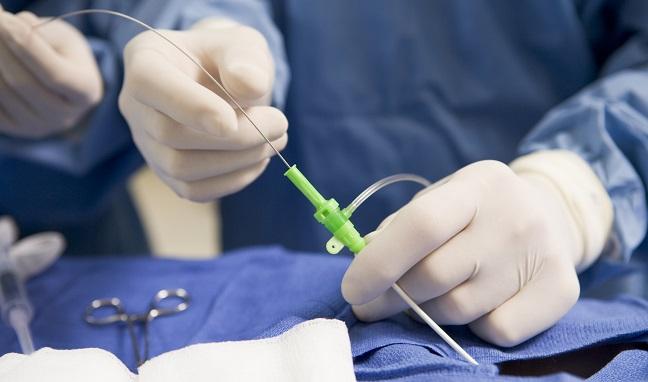Locating a Cardiologist near me that aligns with your goals
Locating a Cardiologist near me that aligns with your goals
Blog Article
Comprehending the Value of Cardiology in Modern Medical Care Services
Cardiology plays a critical function in modern medical care, specifically as heart problem proceeds to be the leading reason for death worldwide. Breakthroughs in diagnostics and treatment have transformed patient treatment, allowing earlier treatments and improved outcomes. In addition, the change towards preventive cardiology equips people to handle their health and wellness proactively. As technology continues to advance, the combination of cutting-edge services may better redefine cardiology's influence on public wellness, prompting a better assessment of arising patterns and their implications.
The Occurrence of Cardiovascular Disease and Its Impact on Public Health
Although cardiovascular disease continues to be the leading reason of death worldwide, its influence extends much beyond individual people to impact public health systems and economic situations. The high occurrence of cardiovascular disease places a considerable strain on health care sources, demanding enhanced funding for treatment, avoidance, and rehab programs. Public health efforts should attend to risk elements such as weight problems, smoking, and inactive lifestyles, which add greatly to the increasing incidence of heart conditions.Moreover, the economic worry linked with cardiovascular disease is immense, including not just direct clinical costs however also indirect expenditures related to lost efficiency and early mortality. Neighborhoods face obstacles in taking care of these costs, frequently bring about variations in health care access and results. As the populace ages and lifestyle-related dangers remain to escalate, the necessity for effective cardiology treatments comes to be extremely important. Addressing heart condition is not only an issue of private health and wellness however likewise an important public health top priority.
Advances in Cardiac Diagnostics and Imaging Techniques
Recent improvements in heart diagnostics and imaging techniques have actually transformed the area of cardiology, improving the capability to monitor and detect heart problem. Strategies such as heart MRI, CT angiography, and echocardiography have ended up being increasingly sophisticated, providing thorough pictures of cardiac frameworks and functions. These techniques permit the very early identification of conditions like coronary artery illness, heart failure, and valvular disorders.Moreover, developments in non-invasive diagnostics, such as wearable innovation and remote monitoring gadgets, have empowered people and health care suppliers. These devices promote real-time tracking of heart rhythms and other essential signs, leading to timely interventions. Furthermore, expert system is being incorporated into imaging analysis, boosting accuracy and effectiveness in medical diagnosis.
Advancements in Treatment Options for Heart Issues
Current advancements in cardiology have actually led to considerable developments in treatment alternatives for heart disease. These include innovative surgical strategies that improve step-by-step results and arising medicines that offer brand-new opportunities for treatment. As the area advances, these innovations play a crucial role in improving individual care and end results.
Advanced Surgical Techniques
Developments in surgical methods have actually changed the landscape of cardiology, offering brand-new hope for people with heart problems. Minimally intrusive treatments, such as catheter-based treatments, have substantially minimized recovery times and hospital stays. Strategies like robotic-assisted surgical procedure improve accuracy, allowing cosmetic surgeons to navigate complex anatomical structures with greater precision. Improvements in imaging innovation promote real-time visualization during treatments, enhancing end results. Transcatheter aortic valve replacement (TAVR) exemplifies an innovation in dealing with aortic stenosis, allowing shutoff substitute without open-heart surgical procedure. In addition, hybrid techniques that integrate surgical and catheter-based approaches provide customized solutions for various heart issues. These innovative surgical strategies not just enhance individual safety yet likewise broaden therapy options, emphasizing the important function of technology in modern-day cardiology techniques.
Emerging Medicines and Treatments
As the landscape of cardiology continues to progress, emerging therapies and drugs play an essential duty in enhancing treatment alternatives for heart disease. Advancements such as unique anticoagulants and advanced lipid-lowering representatives have transformed the monitoring of cardiovascular conditions, greatly reducing client morbidity and death. In addition, the development of gene therapies and regenerative medicine provides encouraging avenues for treating conditions previously deemed irreversible. Clinical tests are consistently disclosing the effectiveness of these therapies, pressing the boundaries of traditional treatments. The assimilation of digital health and wellness innovations helps with personalized medication, allowing for tailored therapy strategies based on genetic and way of living factors. Jointly, these advancements underscore the dynamic nature of cardiology, improving patient end results and redefining requirements of care in contemporary healthcare.
The Duty of Preventive Cardiology in Patient Treatment
Preventive cardiology plays a vital role in person treatment by concentrating on the identification of threat elements that add to cardiovascular disease. With way of living adjustment methods and very early detection strategies, healthcare suppliers can effectively decrease the incidence of cardio events - Cardiology care. This aggressive method not only improves patient outcomes however also advertises long-lasting health and wellness
Risk Aspect Recognition
While heart diseases stay a leading cause of morbidity and mortality worldwide, efficient risk element recognition functions as a foundation of preventative cardiology. Identifying threat factors such as high blood pressure, diabetic issues, family members, and hyperlipidemia history is essential for very early treatment. Health care specialists use different evaluating approaches to assess these elements, enabling for customized precautionary procedures. Additionally, recognizing an individual's lifestyle choices, such as cigarette smoking and physical lack of exercise, additionally informs threat evaluations. This thorough evaluation makes it possible for clinicians to create tailored treatment strategies intended at mitigating risks. By focusing on threat element identification, medical care systems can boost client results and lower the general burden of cardiovascular diseases, ultimately adding to enhanced public health and wellness approaches and resource allowance.
Way Of Living Alteration Strategies
A wide range of studies highlights the essential role of way of living adjustment approaches in minimizing heart disease risk. These strategies encompass dietary adjustments, raised physical activity, smoking cessation, and weight management. By embracing a heart-healthy diet rich in fruits, vegetables, entire grains, and lean healthy proteins, people can lower cholesterol levels and blood pressure. Routine exercise enhances the heart and boosts general cardiovascular health. Furthermore, quitting smoking cigarettes significantly minimizes the danger of heart problem and boosts healing rates for those with status quo. Weight management further adds to cardio wellness by alleviating various other threat factors such as diabetes and hypertension. Applying these lifestyle alters not only promotes individual health but likewise works as a cornerstone of precautionary cardiology in individual care.
Very Early Detection Strategies
Way of life alterations substantially add to lowering heart disease threats, however they are most efficient when paired with early discovery methods. Preventative cardiology emphasizes the importance of recognizing potential heart problems prior to they intensify into serious conditions. Techniques such as blood stress surveillance, cholesterol screening, and progressed imaging modern technologies like echocardiograms play crucial duties in reviewing cardiovascular wellness. Biomarkers and genetic testing additionally enhance the precision of early detection, permitting customized precautionary techniques. Normal heart risk evaluations empower medical care service providers to step in proactively, potentially preventing cardiovascular disease and strokes (Cardiologist near me). By incorporating these early detection techniques right into regular treatment, individuals can gain from prompt way of living treatments and targeted treatments, eventually boosting end results and improving lifestyle
Integrating Modern Technology Into Cardiology Practices
As developments in innovation proceed to reshape various fields, the combination of cutting-edge devices and systems right into cardiology techniques has actually come to be important for improving client treatment and results. Telemedicine systems permit cardiologists to keep their explanation an eye on patients remotely, enhancing access to care while reducing the concern on medical care facilities. Wearable tools, such as smartwatches, allow constant go to the website heart price monitoring, notifying both patients and doctors to potential problems in real-time. Furthermore, expert system (AI) is being made use of to assess huge amounts of cardiac data, aiding in very early diagnosis and individualized therapy plans. Advanced imaging strategies, including 3D echocardiography, boost visualization of heart frameworks, resulting in more precise treatments. Digital health and wellness records (EHRs) simplify client details administration, making sure that cardiologists have prompt access to crucial data. Together, these technological improvements are changing cardiology, advertising positive monitoring and enhanced wellness results for people with cardio conditions.
The Relevance of Patient Education and Involvement
Individual education and interaction play a crucial function in the management of cardio wellness. By equipping people with knowledge concerning their problems, treatment alternatives, and lifestyle adjustments, doctor encourage people to take an active duty in their care. This positive method can lead to improved adherence to suggested medicines, dietary adjustments, and exercise routines, inevitably minimizing the danger of complications.Engagement likewise fosters a solid patient-provider relationship, urging open interaction and trust fund. When patients really feel informed and included, they are much more most likely to voice concerns and ask concerns, which can bring about far better scientific end results. Furthermore, instructional resources, such as workshops or digital platforms, can enhance understanding and promote self-management techniques. In general, prioritizing client education and learning and engagement is important for enhancing cardiovascular health, boosting lifestyle, and decreasing medical care prices connected with heart diseases.
Future Fads in Cardiology and Their Potential Influence

Often Asked Concerns
What Way Of Life Adjustments Can Lower Heart Problem Risk?
The present inquiry addresses way of life modifications that can considerably decrease cardiovascular disease threat. Cardiology Jupiter. Taking on a balanced diet plan, taking part in routine physical activity, maintaining a healthy weight, managing stress, and avoiding cigarette can notably enhance cardio health
How Can I Acknowledge Early Signs of Heart Problems?
Identifying early Click Here indicators of heart troubles entails monitoring signs such as chest pain, shortness of breath, tiredness, and uneven heart beat. Timely recognition of these indicators can prompt essential medical analysis and treatment for better results.
What Are the Differences In Between Cardiologists and Heart Surgeons?
The differences in between cardiologists and cardiac doctors depend on their duties; cardiologists mainly handle and identify heart disease via non-invasive methods, while heart specialists do medical treatments to deal with structural heart problems. Each plays a vital, distinct function.

Just how Often Should I Get My Heart Wellness Checked?
The frequency of heart medical examination differs based upon specific threat aspects. Normally, adults ought to go through examinations every one to two years, while those with status quo might require even more regular assessments as encouraged by medical care specialists.
What Role Does Genetics Play in Heart Illness Risk?
Genes considerably affects heart condition danger, with familial patterns indicating acquired problems. Specific genes can incline individuals to hypertension, cholesterol concerns, and various other cardio issues, highlighting the importance of genetic testing in reviewing heart wellness. Heart condition continues to be the leading cause of death globally, its effect expands far beyond specific people to impact public wellness systems and economic climates. Public wellness efforts have to address threat aspects such as weight problems, smoking cigarettes, and less active lifestyles, which add greatly to the increasing incidence of heart conditions.Moreover, the economic worry linked with heart condition is enormous, including not just straight medical expenses but also indirect costs related to shed productivity and early mortality. Precautionary cardiology plays an important duty in patient care by concentrating on the recognition of threat elements that contribute to heart illness. Man-made intelligence (AI) and machine understanding are enhancing diagnostics and patient monitoring, enabling early detection of heart conditions. The differences between cardiologists and cardiac surgeons lie in their functions; cardiologists mainly take care of and detect heart conditions via non-invasive approaches, while cardiac doctors perform surgical treatments to fix structural heart issues.
Report this page